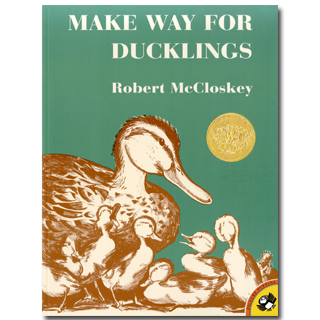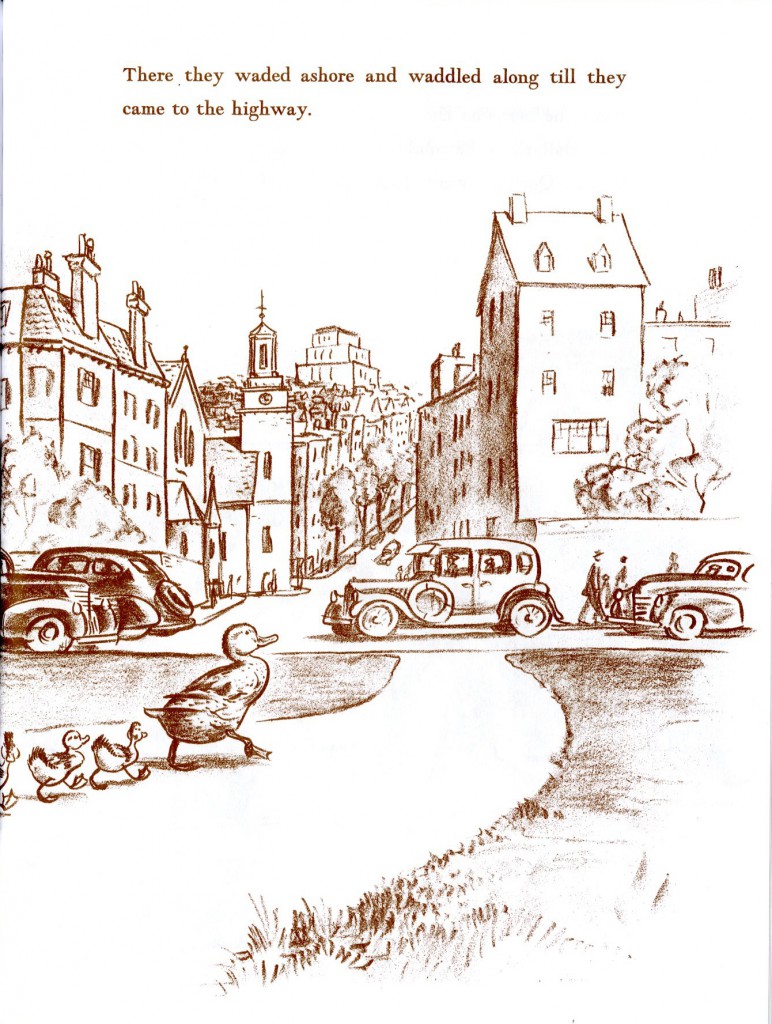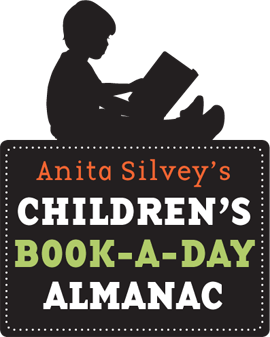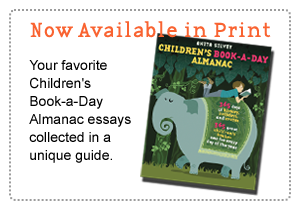
A FEW OTHER EVENTS FOR
AUGUST 28:
- Happy birthday Phyllis Krasilovsky (The Cow Who Fell in the Canal), Allen Say (Grandfatherâs Journey), Kevin Hawkes (Library Lion, The Wicked Big Toddlah), and Brian Pinkney (The Faithful Friend; Duke Ellington).
- Itâs the birth date of Roger Duvoisin (1904-1980), Petunia, Veronica, White Snow, Bright Snow; Roger Tory Peterson (1908-1996), Backyard Birds; Tasha Tudor (1915-2008), 1 is One, A Time to Keep, Corgiville Fair; and F. N. Monjo (1924-1978) The Drinking Gourd.
- In 1845 the first issue of Scientific American magazine was published. Read Investigating the Scientific Method with Max Axion, Super Scientist by Donald Lemke, illustrated by Tod Smith.
- In 1961 Motown releases what would be its first #1 hit, âPlease Mr. Postmanâ by The Marvelettes. Read The Jolly Postman by Janet and Allan Ahlberg.
- On this day in 1963, Martin Luther King, Jr. gives his famous âI Have a Dreamâ speech during the March on Washington for Jobs and Freedom. Reread Martinâs Big Words by Doreen Rappaport, illustrated by Bryan Collier.
In August of 1941 a picture book appeared that has become synonymous with the city of Boston for millions of readers. While he was an art student there, Robert McCloskey got the idea for Make Way for Ducklings from a true story that appeared in the newspaper. However, he developed the book in New York while living in a small Greenwich Village apartment with illustrator Marc Simont.
Unfortunately, although he had a great story about Mr. and Mrs. Mallard and their search for a safe home for their ducklings, McCloskey didnât know how to draw ducks. He went to the parks and the Museum of Natural Historyâand hundreds of duck drawings emerged from his pen. Finally, in an act of desperation, he went down to a market in Greenwich Village, bought some ducks, and brought them back to his apartment and put them in his bathtub. Then, every day, he woke up with a tissue to clean up after them in one hand and a sketchbook in the other. But the ducks still moved too quickly for McCloskey to capture them in detail.
Finally, one night as he and Simont were having dinner, a solution occurred to the frustrated artist: McCloskey gave the ducks some of the red wine he was enjoying that evening, and the ducks slowed down. This ritual became part of his creative work, and the male mallard even became addicted to the wine, driving the female ducks away so he could get it first. McCloskey later apologized for his youthful misdemeanor. If you look closely to the page where a boy goes speeding by on a bicycle, you will notice a male mallard back on his wings. I have always believed that this picture was drawn from a drunken duck.
In the final picture for Make Way for Ducklings, the reader sees Mr. Mallard waiting for his family on a safe island, one without turtles and foxes. Because the book was published during World War II, the first children who read it often had fathers away from home. It sent a subtle, but powerful message: that the family would be reunited in a safe place.
However unorthodox McCloskeyâs methods, they always remind me that a great book requires an author and artist be willing to go many extra miles to complete a classic. And for seventy years, children have delighted with the adventures of Jack, Kack, Lack, Mack, Nack, Ouack, Pack, Quack, and their parents as they explore the city of Boston. So happy birthday Make Way for Ducklings. Iâm headed down to Boston Gardens to pat the statues placed there in your honor.
Hereâs a page from Make Way for Ducklings:
Originally posted August 28, 2011. Updated for .














I love hearing this story. I’m pretty sure you told part of it in an earlier post, but it wasn’t about the Make Way for Ducklings…great to get more background. This was one of the books I remember my dad reading to me. Whenever there is a story in the news about such an event (ducks stopping traffic), he’ll call or write. Last summer, driving home from work, I saw it happen before my own eyes.
Suzi: Yes, the story of ducks stopping traffic emerges from time to time in the Boston Globe. But of course a true is one thing — the genius to turn it into a book another.
With Irene barreling up the East Coast, I am reminded of McCloskey’s TIME OF WONDER, which is both beautiful and absolutely lyrical–one of my favorite books!
Such a great story. Have shared link with our children and grandkids old enough to have email. Suggested they read your story, then go re-read the book, as I just did. Nice to think of Boston in calmer weather than today’s.
Thank you, Anita. I did not know the story about the ducks and red wine. So funny. Thank you for a peek behind the curtain of time.
This made my day. THANKS.
Thank you Anita,
Would you believe it, my favorite book appears on the Book-A-Day Almanac on my birthday (August 28).
And you are going down to the statues to pat them in our honor!
The nicest present I received! đ
Thanks so much
Read Aloud Dad
PS If the little voice in my head is correct, Mr Mallard wanted to name one of the ducklings Ouck (as you mentioned above), but I think that Mrs Mallard convinced him in the end that Ouack would be a better option. And Mr Mallard had no choice but to agree…
Don’t forget Jack! Although one statue is missing from the Gardens, there are 8 ducklings in the story! (And the 8th statue can be found in the Boston Public Library now, I believe.)
Yes, Jack indeed!
We almost forgot him!
Loved the story about drawing the ducks and serving them wine! I’ve read the book to my children and now my grandchildren, and also taken them to ride the swan boats and look for the Mallard family — but not in the Public Garden, not the Boston Gardens!
I have four things to say about this book.
1. I love it.
2. I own it.
3. I have a signed copy of it.
4.I wish I had written it…
Amen.
Read Aloud Dad: A Happy Birthday to you. I would have sent this sooner but I’ve been without power for two days.
Ack, I can’t believe I had brought my daughter to Boston for the first time on Friday, but by the time we went to the North End and saw Revere’s house and Old North Church, she was too tired to go to the public gardens and see the duck statues (and the swan boats). Another visit…
We were also talking about Time of Wonder, as we prepped the grandparents’ house for Irene…
Travelling from Australia I was in Boston in early August. It was so exciting to see a city celebrating a humble little picture book like Make Way!
I’ve heard that the May Massee collection in Kansas has a colored version which was how he originally did it.
Therese: Yes, he originally wanted to create the book in watercolor. He was unknown at the time, and Massee gave him only one color. So he chose brown, rather than black. I’ll be at the Massee Collection in November; will definitely check out the McCloskey files.